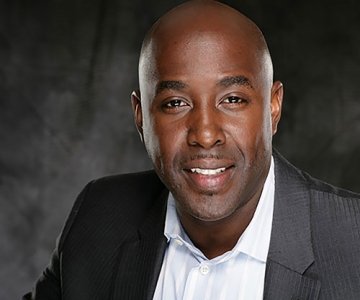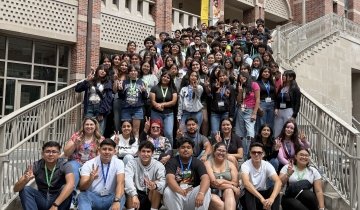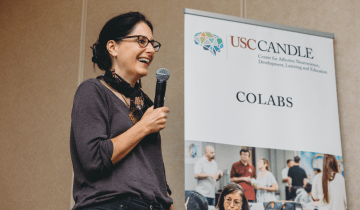One USC Rossier expert on diversity in higher education gets a new global perspective

Darnell Cole, Associate Professor of Education at USC Rossier, has devoted his career to understanding how diversity plays out in higher education. After more than 15 years of research on American campuses, last year Cole traveled to Singapore and Malaysia to examine how diversity impacts students’ educational success in those two countries. By exploring the differences between the United States and Southeast Asia, Cole hopes to apply his new insights to demonstrate the implications and ramifications for institutional policy and practice in the United States. Cole’s study was conducted at the Centre for Transcultural Studies at Temasek Polytechnic in Singapore and at the Universiti Kebangsaan Malaysia, in collaboration with Dr. Elizabeth Keith and Dr. Faridah Kutty, respectively.
USC Rossier's Reach asked Cole to explain why he pursued this international project.
Q: Why did you decide to conduct research abroad?
DC: I thought going outside the United States would bring a fresh perspective to how populations create structural mechanisms to improve their overall well-being through the lens of diversity.
Q: So why Singapore?
DC: Singapore has a diverse society that presents a number of ways to explore its approach to social integration. While many parts of Europe have been studied around issues of diversity and immigration, Singapore has not shown up in the literature, and I saw a wonderful opportunity to explore the country’s approaches to ethnic and religious diversity.
Q: Why was it important for you to travel to a new location rather than delegating work to collaborators on-site?
DC: One reason has to do with the lens that different people bring to their work. A US-based lens on diversity work comes with a certain social and historical context, including a deep background in legal cases around civil rights. I wanted to make sure this perspective was part of the project, not to mention the perspective I would be bringing as an African-American. I also thought it was important to observe firsthand the ways people navigate social, ethnic and religious differences.
"I thought it was important to observe firsthand the ways people navigate social, ethnic and religious differences.” — Darnell Cole
Q: How did this new region make you reconsider the strengths of Americans’ approach to diversity?
DC: Well, in the United States we are able to frame diversity more broadly than in other countries in the world. By that I mean that our long history of civil rights has given us a spectrum for discussing topics pretty openly, such as race, gender, age, disability, sexual orientation. This is not the case in Southeast Asia, where diversity might refer to regional differences as opposed to issues around indigenous populations. It’s harder to have conversations about gender and even more difficult to address sexual orientation.
Q: How do you mentor your students at USC Rossier?
DC: I encourage them to have an openness about their sense of self around their research topics while being open to new possibilities, new perceptions and new ways of understanding. You really get to test out your own assumptions on the ground, not just the research ones, but the ones that inform the research.
Q: What’s next?
DC: We’re developing proposals for the upcoming Association for the Study of Higher Education (ASHE) and AERA conferences, each from the Singapore research—one that deals with the impact of their curriculum on critical thinking, and the other on changing and impacting perspectives around tolerance, acceptance and understanding. A Malaysia paper will look at student faculty expectations, specifically the kinds of relationships that develop between the national population of Malaysia and international students. Yet another paper will be a comparison of some of these key measures of diversity in Singapore, Malaysia and the United States. The results will show how frequently students are interacting with people who are different from themselves and the extent to which these kinds of interactions—as well as curricular interventions—impact students’ educational gains.
This article was featured in the June 2015 Issue of Reach



